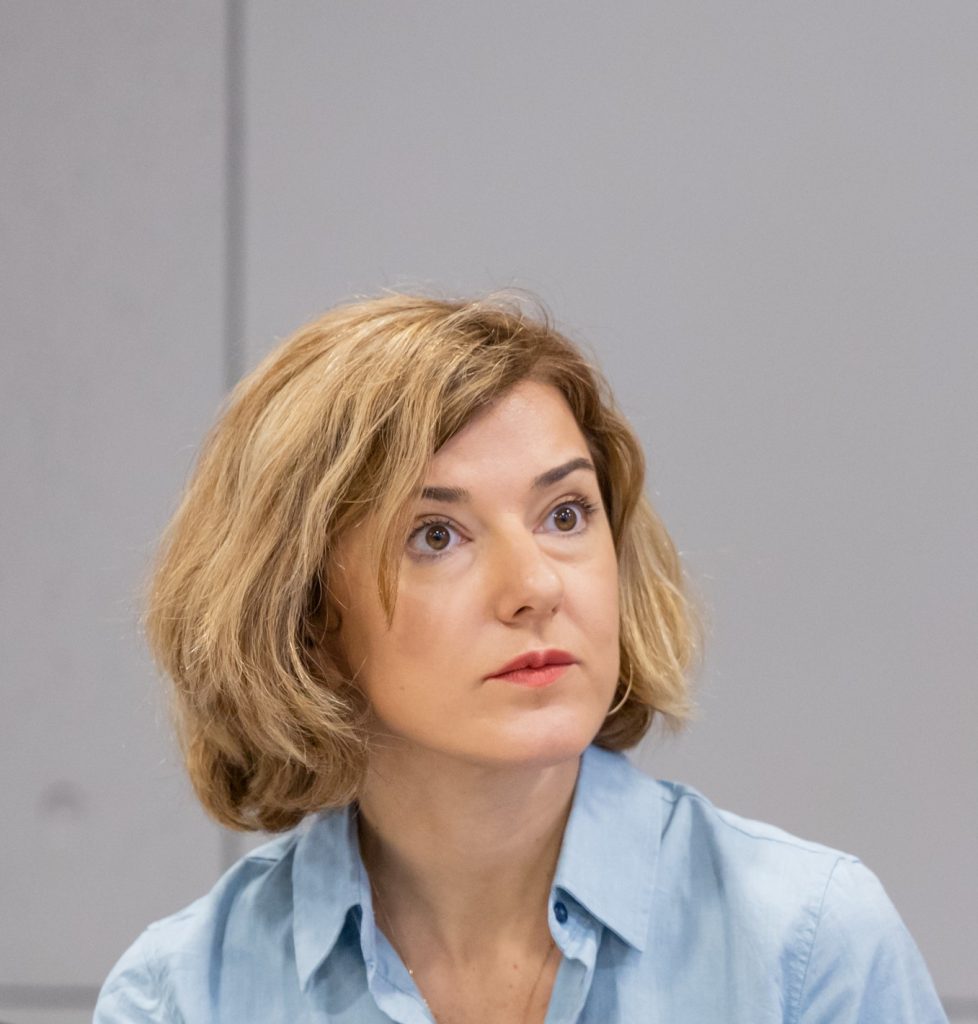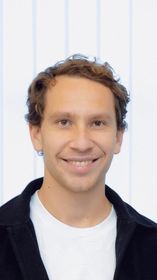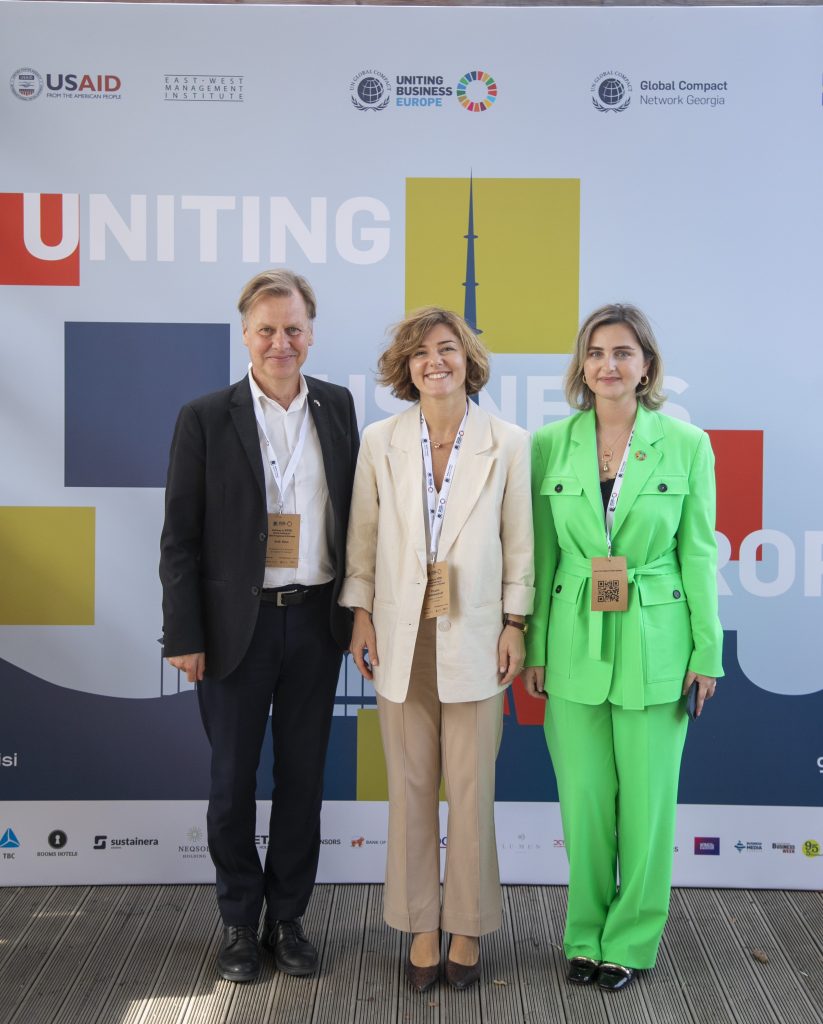Greening Georgia: Swedish Development Aid to Boost Sustainable Finance in Georgia
Authors:
Tinatin Genebashvili, Programme Officer, Embassy of Sweden in Tbilisi
Sofia Altafi, Catalytic Development Finance Advisor, Sida
Henric Hansson, Catalytic Development Finance Advisor, Sida

A financial system that efficiently allocates capital for sustainable development is central for any country’s green transition and competitive economy in the years to come. This article examines how Sweden and the Swedish Development Cooperation Agency (Sida) leverage official development aid (ODA) to foster sustainable finance in Georgia to support the country’s green transition and integration into the EU.
The World Bank has summarised the climate risks faced by Georgia in the short- and long-term and the impacts of climate change on communities, livelihoods and economies. Due to a combination of political, geographic, and social factors, Georgia is recognized as vulnerable to climate change impacts and ranked 40th out of 181 countries in the 2020 ND-GAIN Index. More frequent heat waves also represent major risks to biodiversity. Climate change is expected to impact many important economic sectors; the agricultural sector will experience negative crop growth and the tourism sector will be particularly hit in both mountain regions and along the coastline.
Although such future scenarios imply a dire need for investments towards limiting the negative consequences of climate change on human lives while reducing emissions, mobilising private capital towards these ends has proven difficult. In particular, investments in climate change adaptation as well as in biodiversity and ecosystems services do not necessarily make sense for investors as the short-term and fast financial returns are difficult to see.
Simultaneously, Georgia is a regional front-runner when it comes to sustainable finance. The National Bank of Georgia (NBG) has published the sustainable finance taxonomy in early 2022 and put in place environmental, social and corporate governance (ESG) reporting and disclosure principles. The progressive stance of banks, coupled with high motivation in the private sector, further solidifies Georgia’s position in the forefront of sustainable financial practices. Many of the most important real economy sectors have endless possibilities to transform, given the right circumstances: there is a lot of untapped potential in waste management; the Georgian mining sector is in need of transformation; although many agricultural companies have started to implement more sustainable practices, much work remains; and the Georgian forestry industry offers plenty of new and sustainable opportunities. With a policy framework in place, banks that are willing to take part, and a lot of entrepreneurial potential, investing in Georgia’s path towards a sustainable financial system becomes especially rewarding.

Via Sida’s guarantee scheme, which is backed by the Swedish state, TBC Bank has been able to disburse over 1 700 guaranteed MSME loans for a total amount of close to USD 72 million.
However, change is not happening fast enough and key constraints remain, including limited capacity in institutions, low level of innovation, lack of multi-stakeholder engagement and coordination, insufficient short-term financial returns, and a high perception of risk. On top of this, many groups lack adequate skills and know-how to find a place in the new economy. The most recent private sector diagnostic report for Georgia underscore that “investors see environmental and social challenges and policy and regulatory uncertainty as the main sources of risk to renewable energy investment in Georgia”. For international as well as local banks, fund managers and private investors to see the potential in such investments, several things must be in place: a climate policy including a sustainable finance framework, investable green businesses that are connected to international supply chains, and stakeholder buy-in about the importance of ESG reporting.
To overcome some of these barriers, Sida has, during recent years, explored how to use ODA in order for it to be catalytical in mobilizing private capital. One example of this includes guarantees that we have launched in partnership with market-leader TBC Bank and niche-lender Crystal, a microfinance institution. While the transition to a green economy offers ample opportunities for employment, innovation, and trade, some groups and individuals also risk being excluded from the labour market or otherwise left behind. By sharing the risk with Sida, TBC Bank and Crystal are able to provide business loans to previously unbanked MSMEs and micro-enterprises respectively, with majority of them based in the regions of Georgia. The TBC guarantee has been designed in such a way that it is especially favourable for the bank to cater to start-ups, women-led/-owned as well as to green businesses. Via Sida’s guarantee scheme, which is backed by the Swedish state, TBC Bank has been able to disburse over 1 700 guaranteed MSME loans for a total amount of close to USD 72 million.

As we move forward, Sweden aims to capitalize on Georgia’s current momentum and our ongoing initiatives. We seek to unite likeminded donors with a shared commitment to sustainable finance and more coordinated development support. Georgia has already taken significant strides in the right direction, prompting us to issue a call to action: we welcome financial institutions and companies to take a proactive part in the shaping of a sustainable business environment.
In 2022, the embassy commissioned a midterm evaluation of the TBC Bank guarantee. The evaluators found that the facility is serving as an efficient tool for mobilizing private sector funds for Georgian MSMEs. The facility has allowed TBC to expand its lending to microenterprises and small enterprises with limited available collateral beyond what the bank could safely have done without any guarantee. Interviews with a sample of MSME recipients of guaranteed loans suggested very positive early business results for most borrowers, as three quarters of them reported increases in sales, profits and employment as a result of the investments they financed with their loans.
Enthused by the positive changes in Georgia, Sida has stepped up its engagement in sustainable finance and in greening the banking sector. In the beginning of 2023, as part of a fact-finding mission to better understand the specific needs and conditions in Georgia, Sida’s experts at the Swedish embassy in Tbilisi teamed up with advisors at the Stockholm headquarters. Together, we conducted an in-depth analysis of the Georgian financial sector, especially focusing on the newly launched taxonomy and its alignment with the EU Taxonomy, opportunities to increase the level of circularity in the economy, and green lending. Sida is currently elaborating on how to multiply the effects of ODA on climate change adaptation and biodiversity via risk-sharing guarantees, challenge funds and technical assistance to financial institutions and loan-takers. Challenge funds such as the “Water and Energy for Food Fund” have been used to grant seed money for innovations within the agricultural sector to reduce negative climate impact and promote biodiversity. Guarantees have been used to lift risk from investors to crowdfund renewable energy solutions. Sida can also support project developers in developing and presenting bankable projects to investors through different forms of transaction advice and technical assistance.
As we move forward, Sweden aims to capitalize on Georgia’s current momentum and our ongoing initiatives. We seek to unite likeminded donors with a shared commitment to sustainable finance and more coordinated development support. Georgia has already taken significant strides in the right direction, prompting us to issue a call to action: we welcome financial institutions and companies to take a proactive part in the shaping of a sustainable business environment.

In 2022, the embassy commissioned a midterm evaluation of the TBC Bank guarantee. The evaluators found that the facility is serving as an efficient tool for mobilizing private sector funds for Georgian MSMEs. The facility has allowed TBC to expand its lending to microenterprises and small enterprises with limited available collateral beyond what the bank could safely have done without any guarantee. Interviews with a sample of MSME recipients of guaranteed loans suggested very positive early business results for most borrowers, as three quarters of them reported increases in sales, profits and employment as a result of the investments they financed with their loans.
Through yet another Swedish supported initiative, the UN Global Compact Network Georgia (UN GCNG), boasting over 178 participants in Georgia, the plan is to establish the Sustainable Finance Programme in Georgia. This program will feature quarterly Action Platform meetings, an annual campaign, individual mentoring of companies, awareness raising activities for SMEs, and other coordinated efforts with the NBG. The program’s primary objective is to facilitate discussions and actions pertaining to sustainable finance.
To further incentivize sustainable finance in Georgia, UNGCNG will introduce a Sustainable Finance category to the annual Corporate Sustainability Award competition “Business for SDGs”. This addition aims to recognize companies that are making substantial progress in the field. Additionally, as part of our commitment to raising awareness in the country, the UNGCNG Corporate Sustainability Academy will offer a short course on Sustainable Finance tailored for the financial sector in the Georgian language.
Sweden is committed to supporting Georgia in its EU integration, in which the transition to a green and sustainable society where no one is left behind is fundamental. For the Georgian private sector, competitiveness and access to regional, EU and international markets will highly depend on how well companies manage to make sustainability core to their business models. Mobilising sufficient private capital towards investments in established businesses as well as in new ventures towards increased levels of circularity, more efficient and fossil-free energy solutions, and sustainable practices, however, remains a key challenge. This is true not just for Georgia but for most of the world. By facilitating donor coordination, boosting green lending, and supporting regulators, banks, and private sector mobilization for sustainable finance, Sweden and Sida aspire to foster more synchronized efforts in the greening of Georgia.




 Search
Search





